The Farewell (2019) // A Family Battle Between Two Cultures
The Farewell Review // An Ultimate Guide For Chinese Learners
If you were dying, would you want to know?
This is the question that sits at the heart of the 2019 hit film, The Farewell.
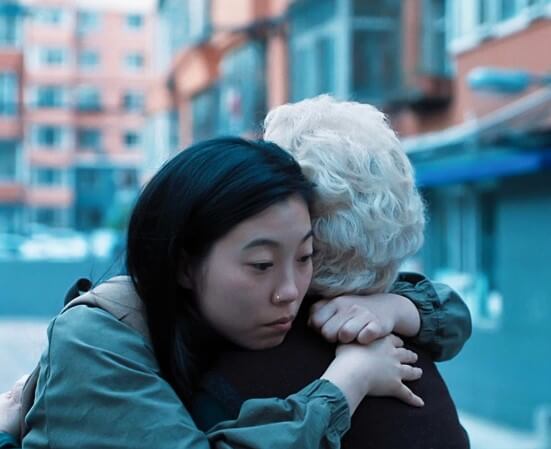
During awards season, this bilingual emotional rollercoaster, starring Awkwafina, picked up some top international awards, including the Golden Globe for Best Actress.
Although American-made, The Farewell is actually a bilingual film, with the majority of the film being in Mandarin.
This makes it a great choice for Chinese learners and sad film lovers alike!
The Farewell Review – Introduction
The Farewell Review – Main Characters
The Farewell Review – Why it’s Great for Chinese Learners
The Farewell Review – Useful Vocab
The Farewell Review – Where to Watch
The Farewell Review – Introduction
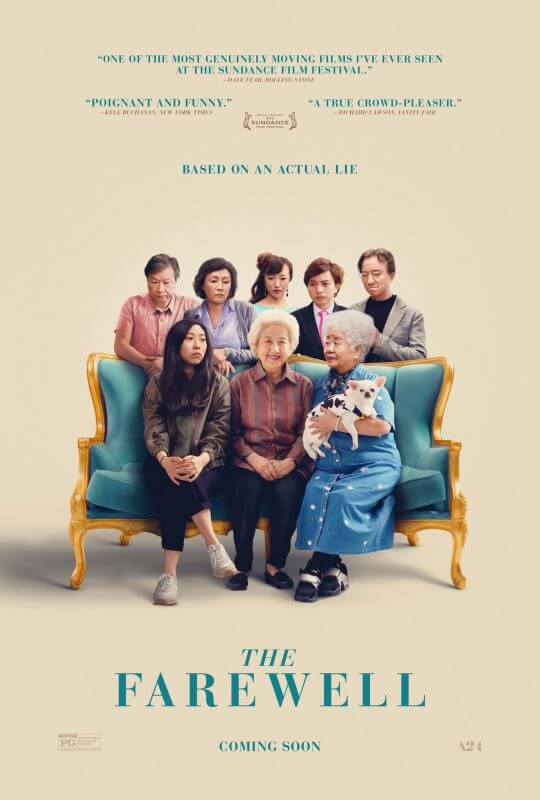
The Farewell is a comedy drama film written and directed by Lulu Wang (王子逸 wáng zǐyì).
“Based on an actual lie”, the film draws from the events of Wang’s own life.
The Chinese title is 别告诉她 (bié gàosù tā) which literally means don’t tell her.
The film follows a Chinese-American family who find out that their grandmother (奶奶 nǎinai) has terminal lung cancer and only has a few months left to live.
They decide not to tell her and instead organise a family gathering so that they can say goodbye.
The main protagonist is Billi, who as a Chinese-American struggles to come to terms with the idea that not telling her grandmother about her illness is for the best.
Billi’s character is based on Wang herself. Make sure to keep watching until the credits appear to find out about Wang’s real life Nai Nai.
The Farewell Review – Main Characters
As there are quite a lot of main characters in The Farewell, getting your head around them all can be a little confusing – especially because in Chinese there are so many different words to describe family members!
You can easily get a bit muddled trying to figure out how everyone is related.
Luckily for you, we’re about to make things a lot easier, you can see a list of the main characters and their relationship to protagonist Billi below:
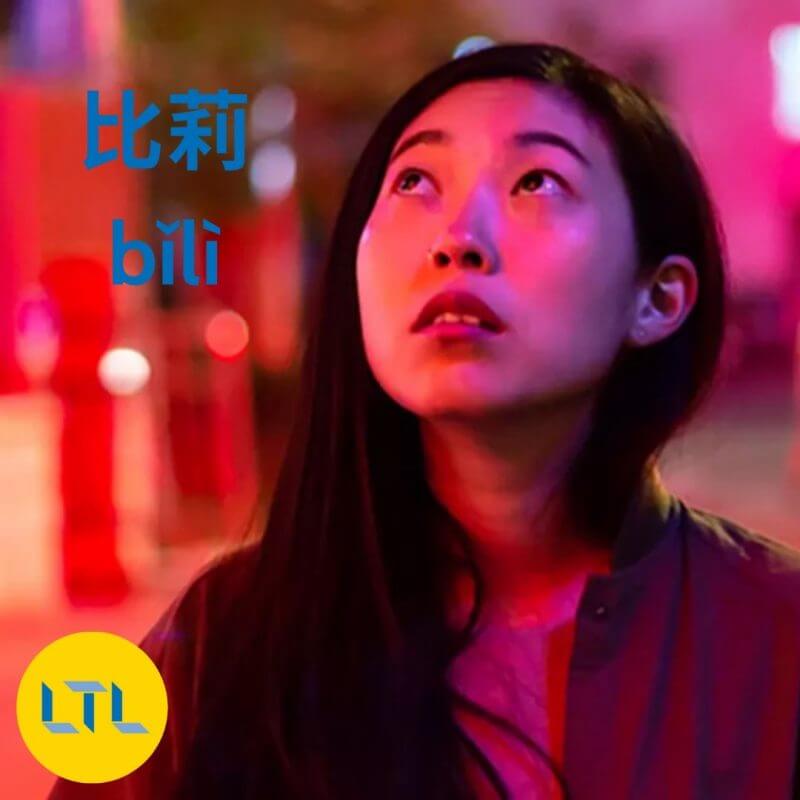
Billi (比莉 bǐlì) – Played by actress Awkwafina (林家珍 lí njiā zhēn) she is the main protagonist of the film.
Billi was originally born in China, but moved to America with her family when she was 6 years old. Despite this she has still maintained a close relationship with her Grandma.
Did you know Awkwafina won a Best Actress Golden Globe for her performance in The Farewell making her the first woman of Asian descent to win one!
The first of Billi’s family members we are introduced to in the film:
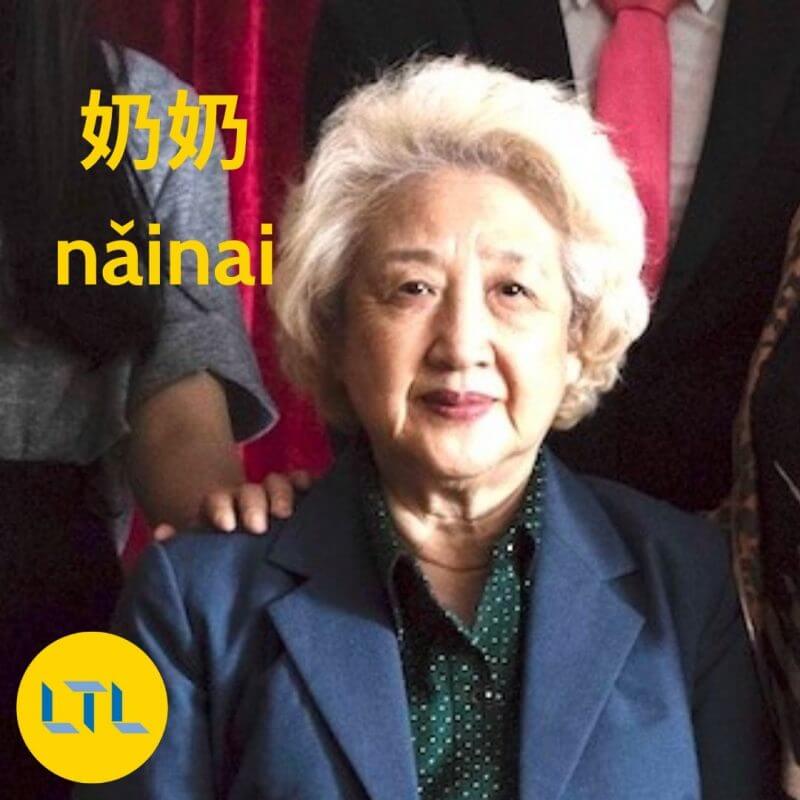
- Haiyan Wang (王海燕 wáng hǎiyàn) – Billi’s father.
- Lu Jian (陆建 lù jiàn) – Billi’s mother.
- Grandma (奶奶 nǎinai) – Billi’s paternal grandmother.
- Little Grandma (小奶奶 xiǎo nǎinai) – Billi’s great aunt (姨奶奶 yínǎinai), Nai Nai’s younger sister. This role is actually played by director Wang’s real great aunt, Lu Hong (卢红 Lú hóng) who is effectively playing herself in the film.
Other family members:
- Haibin (海滨 hǎibīn) – Haiyan’s older brother, Billi’s uncle (伯伯 bóbo)
- Hao Hao (浩浩 hào hào) – Haibin’s son, Billi’s cousin ( 堂弟 táng dì)
- Aiko (爱子ài zǐ) – Hao Hao’s Japanese fiancée
- Ling Shen (玲婶 Líng shěn) – Haibin’s wife, Billi’s aunt through marriage (伯母 bómǔ)
- Yu Ping (玉萍 yù píng) – Nai Nai’s niece (侄女 zhínǚ), everyone calls her Auntie (姑姑 gūgū) even though she isn’t sisters with Haiyan and Haibin.
- Little Bao (小宝 xiǎo bǎo) – Yu Ping’s son
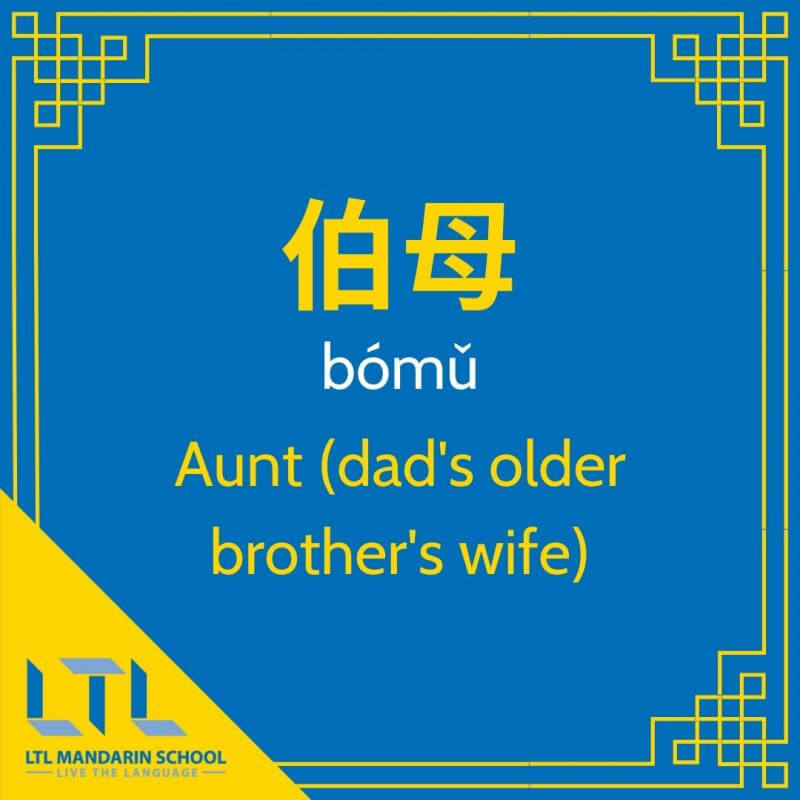
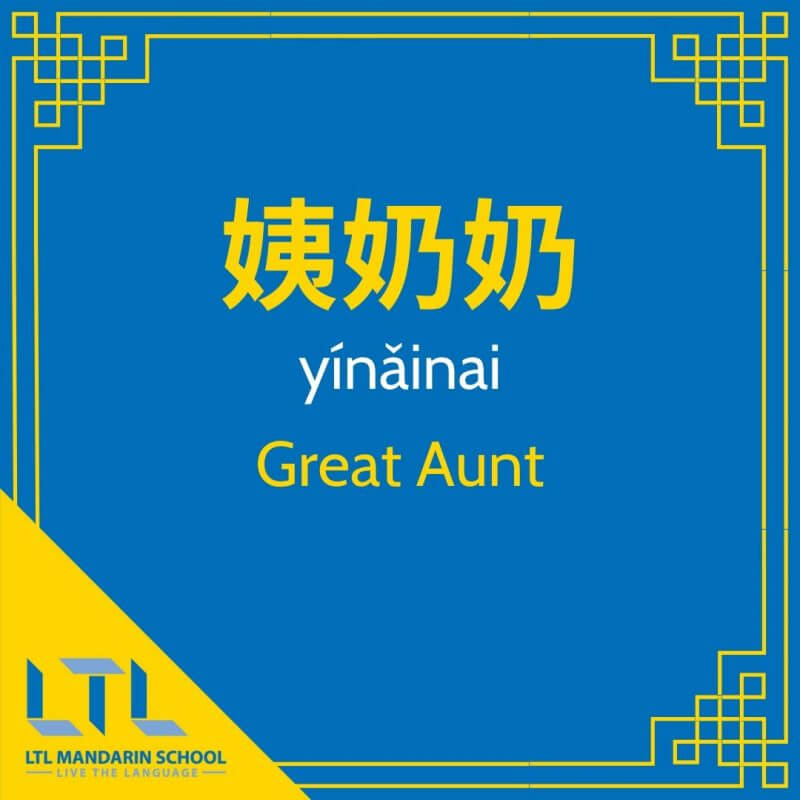
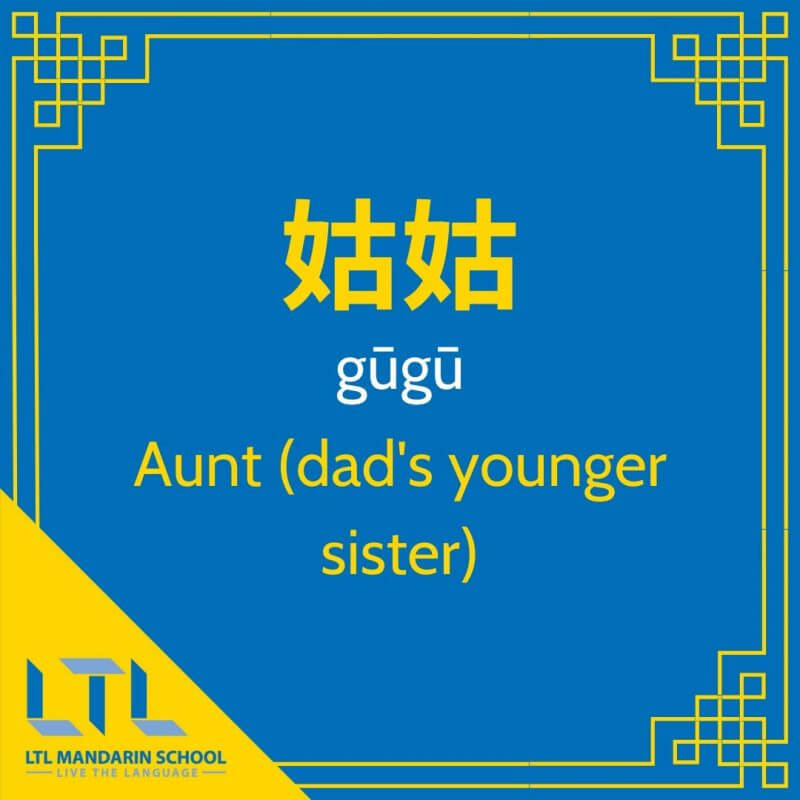
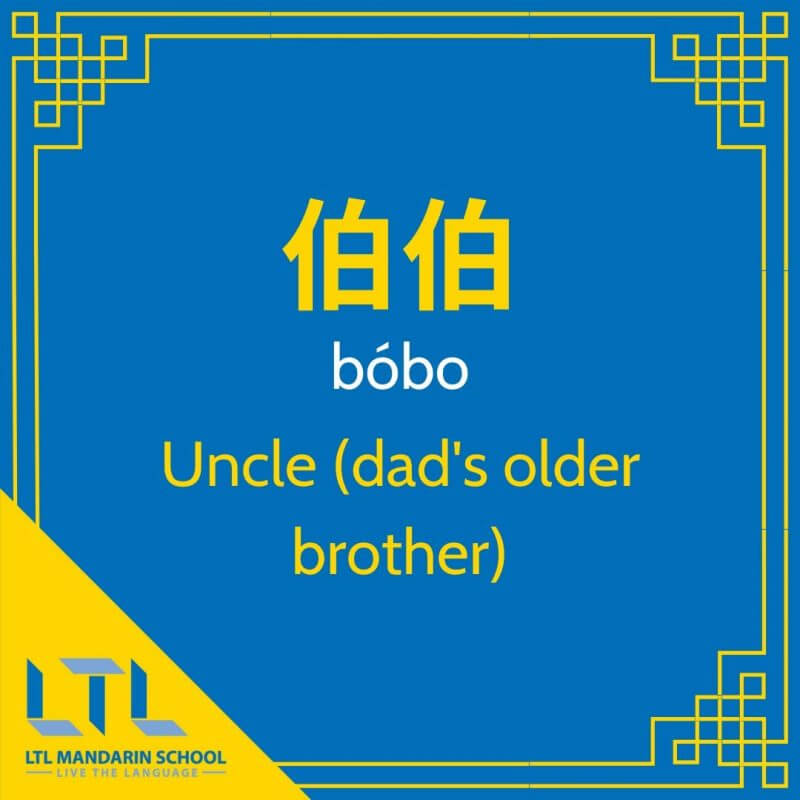
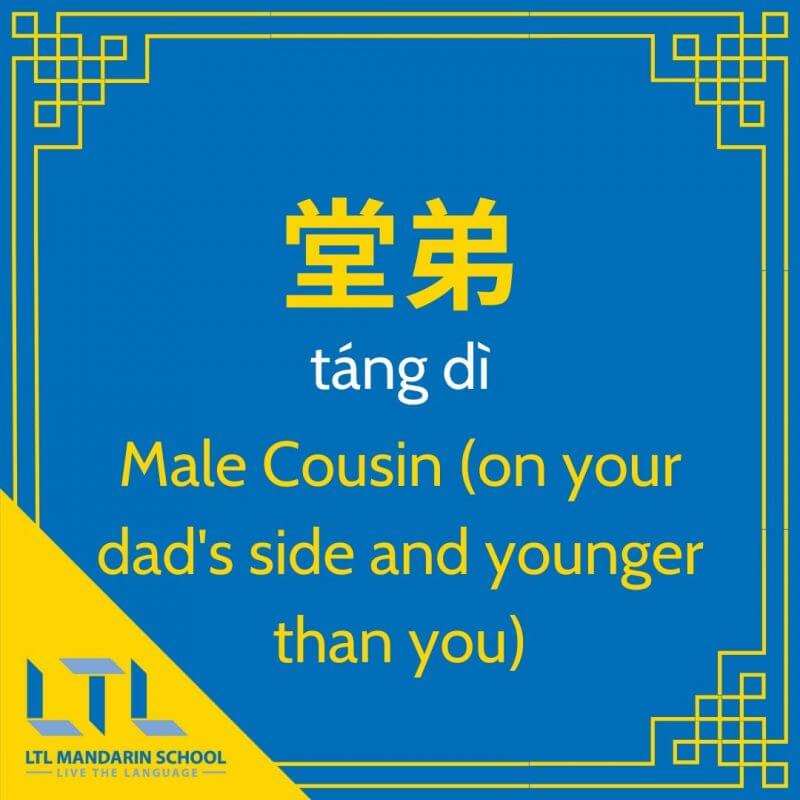
The Farewell Review – Why it’s Great for Chinese Learners
This is a good starter film for those who are perhaps intimidated by watching a full film in Chinese with no English subtitles.
With about 70% of the film being in Mandarin it is definitely the main language, and naturally brings with it plenty of Chinese practice.
However, the English can help bring context and a welcome break for your brain in between the Chinese dialogue.
Speaking of mixing languages, don’t forget to check out our half-English, half-Chinese podcast 50五十!
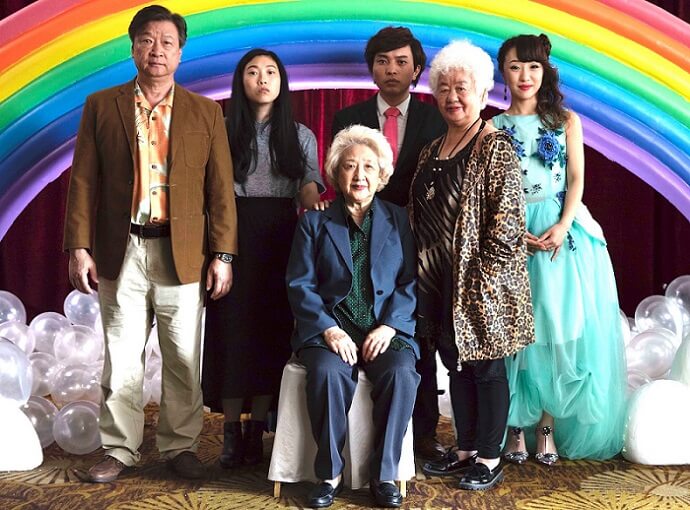
To get the most out of Chinese learning with The Farewell we’d recommend watching the film with only Chinese subtitles. The Chinese dialogue in the film really isn’t too complicated at all.
In the film Billi actually speaks English as her first language and her Mandarin isn’t fluent so quite a lot of basic grammar structures are used.
This is great as it means a lot of the dialogue is quite easy to understand, even for those whose Mandarin is at a more elementary level.
Take this conversation for instance between Billi and a porter at a hotel when she arrives:
Porter: 你是从国外来的?Nǐ shì cóng guówài lái de?
Translation:
Billi: 是 Shì
Porter: 哪个国家?Nǎge guójiā?
Billi: 美国 Měiguó
Porter: 美国?你看着也不像是美国人。为什么回来?Měiguó? Nǐ kànzhe yě bù xiàng shì měiguó rén. Wèishéme huílái?
Billi: 婚礼Hūnlǐ
Porter: 谁的呀?Shéi de ya?
Billi: 我的堂弟的。Wǒ de táng dì de.
Porter: 喔堂弟。他也是从美国回来的?Ō táng dì. Tā yěshì cóng měiguó huílái de?
Porter: Have you come from abroad?
Billi: Yes.
Porter: Which country?
Billi: America
Porter: America? You don’t look like an American. Why have you come back?
Billi: Wedding
Porter: Whose
Billi: My cousin’s.
Porter: Oh your cousin’s. Is he also returning from America?
Along with being a good film to learn Chinese this show also offers lots of valuable insights into Chinese culture. Especially relating to family and how traditions and customs compare to the west.
Looking for more online content to learn Chinese, how about the Chinese drama series Ode to Joy?

Ode to Joy Chinese Drama 💁♀️ A Review for Chinese Learners
One of the best ways to learn Chinese is through watching Chinese TV shows. Here we tell you why Ode to Joy is the perfect Chinese drama to watch.
The Farewell Review – Useful Vocab
Although a lot of the vocabulary in the show is mostly more basic, everyday vocabulary, some more technical words do pop up in the film.
This is especially true when talking about Nai Nai’s health. So here is a list of some useful vocab to know:
- 院 yīyuàn – hospital
- 医生 yīshēng – doctor
- 癌症 áizhèng – cancer
- 病症 bìngzhèng – illness, disease
- 良性阴影 liángxìng yīnyǐng – benign shadow (a term invented by Lu Hong, not an actual medical term)
- 专家 zhuānjiā – specialist
- 药 yào – medicine
- 维生素 wéishēngsù – vitamin
- 肺 fèi – lung
You’re encouraged to list more vocabs to know in Chinese as your comment.
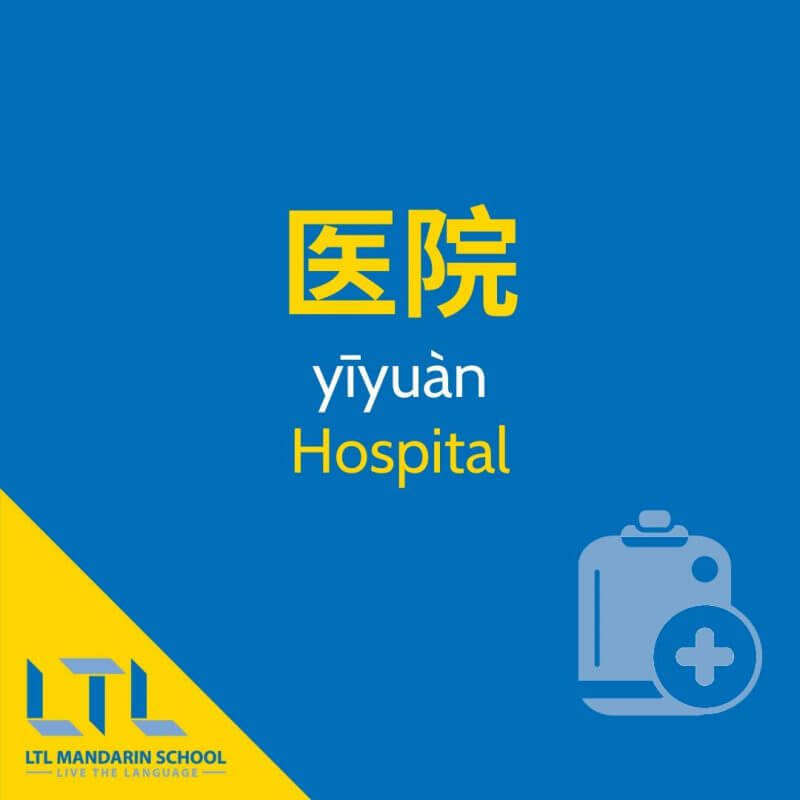
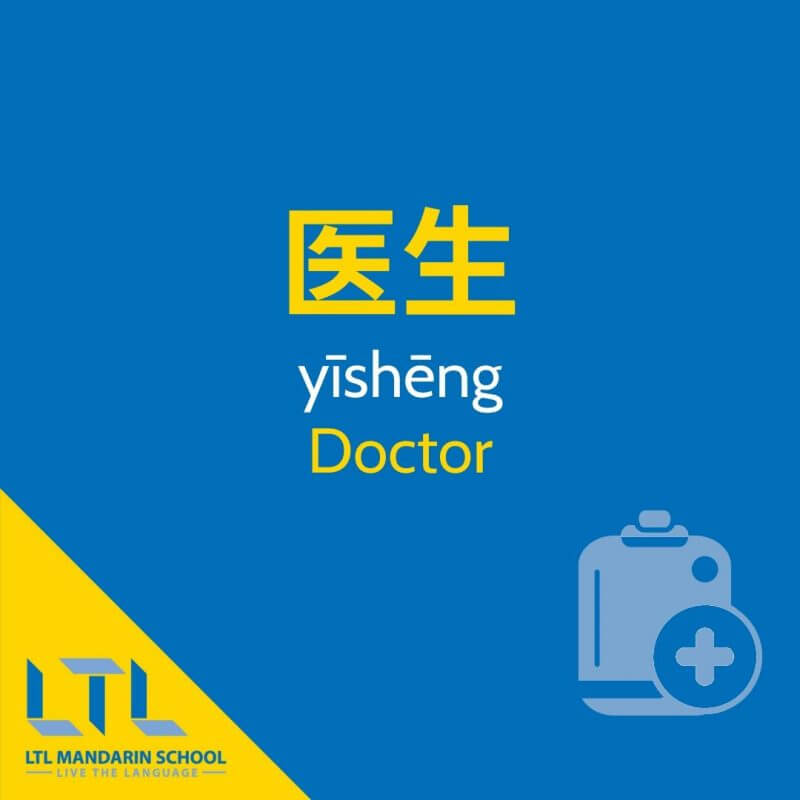
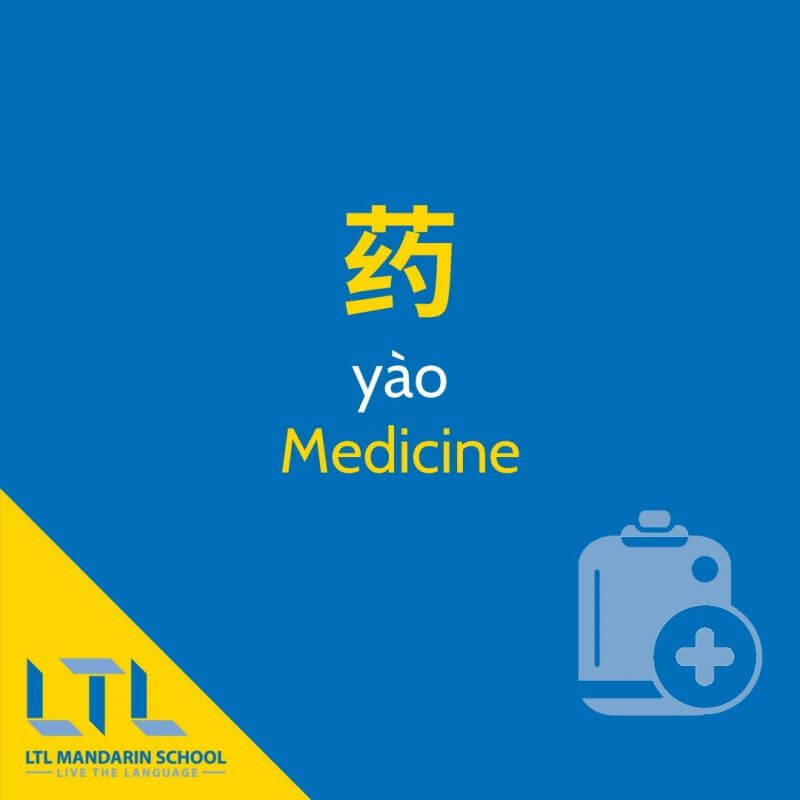
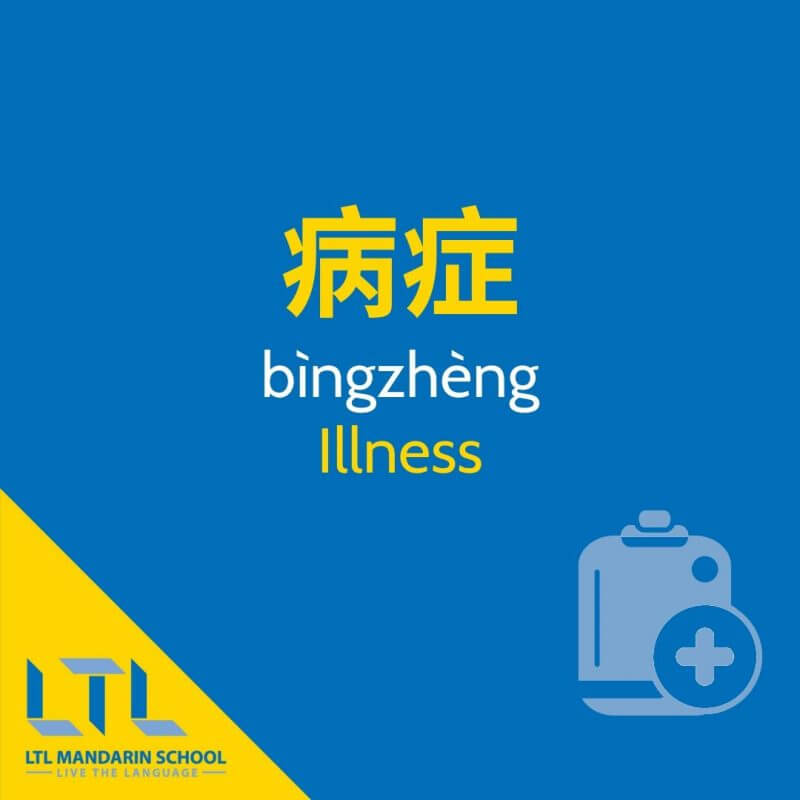
Along with the vocabulary about health, here are some other useful words that appear in the film which you might not know:
- 婚礼 hūnlǐ – wedding
- 团聚 tuánjù – reunion
- 龙虾 lóngxiā – lobster
- 螃蟹 pángxiè – crab
- 扭扭捏捏 niǔ niǔniē niē – affecting shyness or embarrassment
- 傻 shǎ – stupid, foolish
- 怀孕 huáiyùn – pregnancy, to be pregnant
- 弹钢琴 tán gāngqín – play the piano
- 教堂 jiàotáng – church
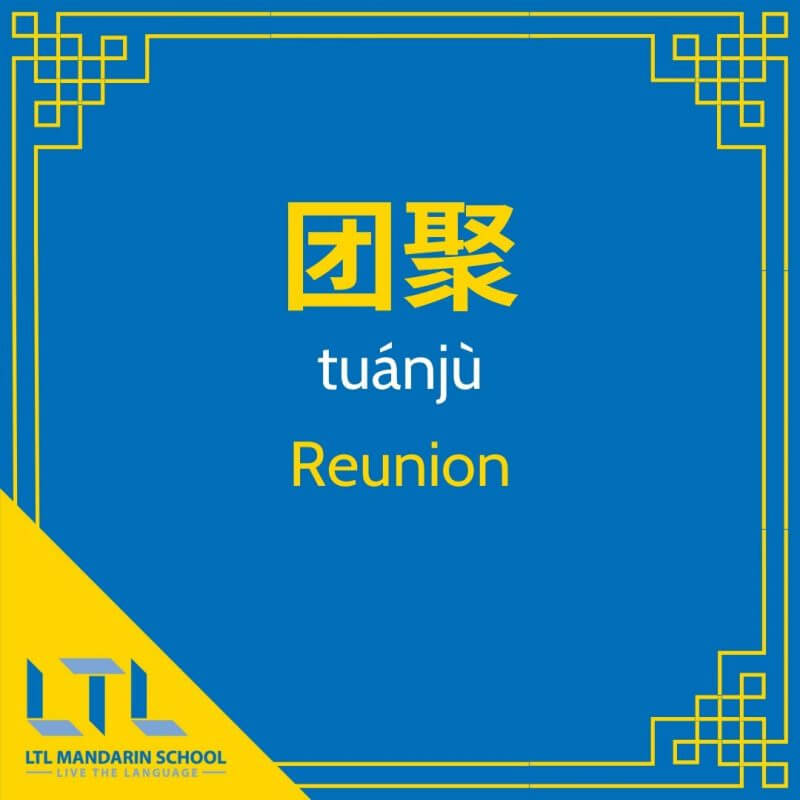

The Farewell Review – Where to Watch
You can pay to watch The Farewell on YouTube, this is a great platform for watching Chinese shows like this as you can choose the option of only having Chinese subtitles.
It’s also available to buy or rent on Amazon and other paid streaming sites.
As a relatively new film it hasn’t yet become available on Netflix.
It can also be watched on some Chinese streaming platforms, however you’ll need to search for the Chinese title “别告诉她 “.
Interested in learning more about Chinese wedding traditions? Have a look at our blog and watch the video below of our Marketing man Max making a speech at a Chinese wedding!
The Farewell – FAQ’s
Is The Farewell a true story?
The Farewell is based on the true story of the film’s director and writer Lulu Wang.
Parts of the film have been fabricated, but it’s true that Wang’s grandmother was diagnosed with terminal lung cancer and it was kept a secret from her by the family.
Where can I watch The Farewell?
You can pay to stream The Farewell on YouTube and Amazon.
It is also available on some Chinese streaming sites.
Is The Farewell on Netflix?
No, at the moment The Farewell is not available to watch on Netflix.
Is Nai Nai still alive?
Yes, the story follows the true story of Lulu Wang’s Nai Nai, who is still alive.
A video of Wang’s real life Nai Nai features at the end credits of the film.
Despite doctor’s telling her family she only had a few months left to live, 6 years later she is still living.
Want more from LTL?
We offer a 7 day free trial to all new students where you can study Mandarin 24/7. Come and check it out free of charge and see what you think.
We also offer immersive Chinese courses in China. You can learn more about those here.
Sign up below and become part of our ever-growing community.









5 comments
[…] you want to learn more about Chinese wedding traditions why not watch The Farewell and practice your Chinese at the same […]
Good movie but I found it hard to learn as I went along. Need to be there for hours
Maybe Language Learning with YouTube/Netflix might be of help?
Genuine tearjerker!!
Couldn't agree more!